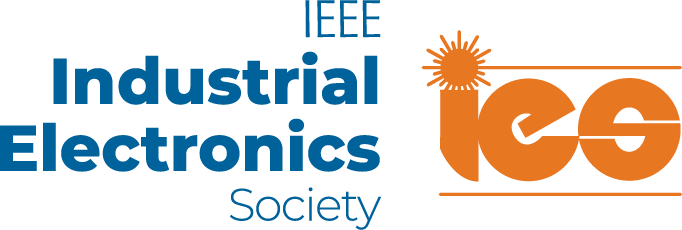Special Sessions
Introduction
Special sessions can cover subjects or cross-subjects belonging to the topics of interest, or novel topics related with the ones identified within the topics of interest. List of approved special sessions are below. To propose a special session, instructions are further below.
List of Special Sessions
-
Advanced Control of Grid-Connected Converters for Distributed Generation and Power Quality
Hadi Y Kanaan
and
Kamal Al-Haddadand
Hasan Komurcugiland
Mohammad Sharifzadehand
Fadia Sebaaly -
Modelling, Estimation and Control of Complex System
Jun Huang
and
Yueyuan Zhangand
Yan Song -
Coordination control of complex network systems and its industrial applications
Guanghui Wen
and
Junjie Fuand
Yuezu Lvand
Chen Liu -
Advanced Electric Machine and Drive System Technologies for Flying Electric Vehicles
Chunhua Liu
and
Zaixin Songand
Christopher H. T. Leeand
Wei Liu -
Industrial Internet-of-things (IIoT) Technologies and Security Measures for Industrial Intelligence
Chung Kit Wu
and
Moe Alahmadand
Kim Fung Tsang -
Power Electronics Applications in Renewable Energy
Venkatesh Boddapati
and
Rakesh Kumarand
Sanjeevikumar Padmanabanand
Dwarkadas P. Kothari -
Data-driven fault diagnosis and fault-tolerant control: Recent Advancement
Yuchen Jiang
and
Yunsong Xuand
Hao Luoand
Shen Yin -
Emerging Technologies and Applications of Wireless Power Transfer
Wei Han
and
Chaoqiang Jiangand
Hui Zhaoand
Zhichao Luoand
Dianxun Xiao
Proposal Content
-
If you are interested to organize a special session, please send proposal by using the template
(microsoft word format) and email to the Special Session Co-Chairs Thomas Strasser (thomas.i.strasser@ieee.org) and
Paulo Leitão (pleitao@ieee.org).
Include the
following information:
- Title of the Special Session
- Brief description of the area of concern (approx. 100 words), with special focus
- The name and contact information of THREE or more special session organizers (multi‐nationals preferred and multi-institutional mandatory), who are willing to promote and organize a sufficient amount of quality submissions to the special session. Please also indicate the background of the organizers.
- A list of potential authors and their affiliations
- A list of international potential reviewers and their affiliations (20 minimum)
- The sponsoring IES Technical Committee (if any)
Organization of special sessions
Once the special session is approved, it is the duty of the Organizers to publicize the Special Session among researchers and practitioners in the field and attract a sufficient number of papers.
Papers submitted to special sessions will undergo the same review process as regular papers. The special session organizers of the respective special session are responsible for organizing the review process, assuring at least three reviews per paper. This includes selection of reviewers from their peers.
Conflict of Interest
Before starting the review process, SS organizers must explicitly declare papers which present a conflict of interest for them. A conflict of interest arises where the judgement of a paper quality can be influenced by the organizers being authors or knowing some of the authors. To ensure independent reviews, this conflict must be marked as such in the submission system and the SS Co-Chairs notified so that they can arrange the review process.
Restrictions
-
During the review process, Special Session Organizers must take into account that:
- An individual cannot be (co‐)author of more than two papers submitted to the same Special Session.
- Papers from organizers cannot exceed 60% of the contents of the Special Session.
Successful Special Sessions
A minimum of 6 accepted papers with authors from at least 3 independent institutions (other than the organizers institutions) and two different countries is required for each session. If a session has too few papers, accepted papers will be allocated to regular sessions wherever possible. In case of indication of weakly organized special sessions, the conference organizers will support the organizers with advice but reserve measures including cancellation of the respective special session.
Free Conference Registration
Organizers of successful Special Sessions must register for and attend the conference, and chair the corresponding sessions. One complimentary full registration will be provided to successful Special Sessions with at least 5 papers not authored by any of their organizers.
Session Chairs during Conference
When a SS is finally accepted by the conference, SS organizers will serve as Session chairs in the conference. In some extenuated circumstance, Technical Program chairs and Conference General Chairs might take up the full control of appointing the Session Chairs should the SS organizers unable to participate the conference.
Important Dates
| Deadline for submission of special sessions proposals | Jan 08 2022 |
| Deadline for submission of special session papers | Jan 15 2022 |
| Notification of acceptance | June 05, 2022 |
| Deadline for submission of final manuscripts | Feb 28, 2022 |
Special Sessions Co-Chairs
-
Paulo Leitao
, Portugal
-
Thomas Strasser
, Austria
-
Peng Zeng
, China

